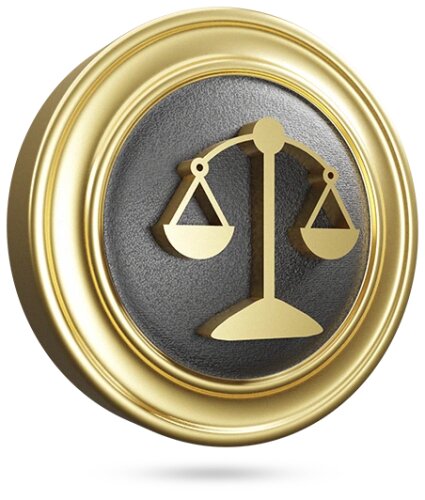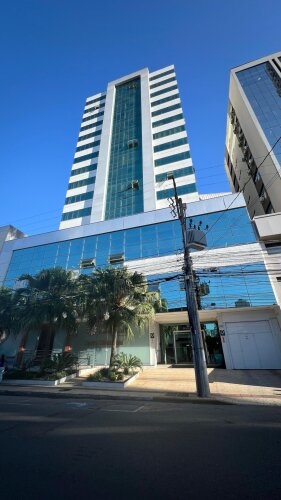Best Appeal Lawyers in Itajaí
Share your needs with us, get contacted by law firms.
Free. Takes 2 min.
List of the best lawyers in Itajaí, Brazil
About Appeal Law in Itajaí, Brazil
An appeal, known as "recurso" in Brazil, is a formal legal process that allows parties to challenge decisions made by a court or judge. In Itajaí, a city located in the state of Santa Catarina, appeals play a critical role in the local justice system, helping ensure fairness and the correct application of the law. By filing an appeal, individuals and organizations can request a higher court or panel of judges to review aspects of their case or the entire outcome. The right to appeal is protected under Brazilian law and is available in both civil and criminal matters. Each type of case may have specific procedures and deadlines, making it important for those involved to understand the local rules and requirements.
Why You May Need a Lawyer
People seek the help of an appeal lawyer in Itajaí for various reasons. Common situations include unsatisfactory court rulings, procedural errors during their trial, denial of certain evidence, perceived judicial bias, or new evidence that emerged after the initial judgment. Navigating the appeals process can be complex. Appeals typically require precise legal arguments, thorough documentation, and an understanding of higher court expectations. A qualified lawyer provides not only technical expertise in drafting appeals and following procedure, but also an objective assessment of whether an appeal is likely to succeed. Furthermore, strict appeal deadlines and formalities mean that professional guidance can be crucial to preserving your rights.
Local Laws Overview
The appeals process in Itajaí follows federal and state guidelines, with local practices overseen by the Judiciary of the State of Santa Catarina. Most appeals begin in the comarca's (judicial district) courts and may proceed to the Tribunal de Justiça de Santa Catarina. The main types of appeals are “apelação” (general appeals), “agravo de instrumento” (interlocutory appeals), and “embargos de declaração” (appeals for clarification). The procedures and deadlines for each type are set out in the Brazilian Civil Procedure Code (Código de Processo Civil) and the Criminal Procedure Code (Código de Processo Penal).
Some key aspects of local appeal law include:
- Strict deadlines, often 15 days after judgment, for filing most appeals.
- Written submissions, showing clear arguments about legal errors or omissions in the decision being challenged.
- The need to pay applicable court fees unless you are eligible for judicial assistance (gratuidade da justiça).
- Possibility of submitting urgent requests, like suspending judgment enforcement, during the appeal process.
Because judicial practices and administrative procedures can vary locally, consulting a lawyer in Itajaí who knows the court's expectations is highly advisable.
Frequently Asked Questions
What is an appeal and when can I file one in Itajaí?
An appeal is a formal request for a higher court to review and potentially revise a lower court’s decision. You can typically file an appeal if you disagree with all or part of a final ruling or if you believe legal or procedural errors affected the outcome.
How long do I have to file an appeal after a court decision?
Appeal deadlines vary but are usually 15 calendar days from the date you are officially notified of the judgment. It’s very important to act quickly, as late appeals are generally not accepted.
Can I represent myself in the appeal process?
While self-representation is legally possible, the appeal process is technical and procedural. Most people choose to hire a specialized lawyer, since errors in the appeal can lead to automatic rejection.
What documents do I need to prepare for an appeal?
Essential documents include the original decision, the complete case file, the appeal petition with your arguments, proof of court fee payment (unless exempted), and sometimes supporting evidence.
How are appeal decisions made?
Appeal decisions are typically made by a panel of judges at the Tribunal de Justiça de Santa Catarina, who review written arguments from both parties before issuing a collective decision.
Can I stop the enforcement of a judgment while my appeal is pending?
In some cases, yes. You can request a “stay” or suspension of the judgment’s effects while the appeal is under consideration, but this is not automatic and must be justified.
What types of cases can be appealed?
Almost all judicial decisions, civil and criminal, can be appealed, except for some interlocutory decisions or minor claims where appeals may be restricted by law.
How much does it cost to appeal a decision?
Fees can vary based on the type of appeal and court, but there are standard filing fees. If you cannot afford to pay, you may apply for judicial assistance (gratuidade da justiça) to waive these costs.
How long does the appeal process take?
Appeals can take several months to more than a year, depending on case complexity, court backlog, and other factors.
What happens if my appeal is denied?
If your appeal is denied, you may have the option to pursue further appeals with higher courts, including federal tribunals in certain cases, but only under specific circumstances and often with restricted grounds.
Additional Resources
For those seeking more information or direct assistance, the following resources may be helpful:
- Tribunal de Justiça de Santa Catarina (TJSC) - The main state court for processing appeals in Itajaí.
- Ordem dos Advogados do Brasil - Seccional de Santa Catarina (OAB/SC) - The local bar association provides lists of qualified appeal lawyers and information about free legal clinics.
- Defensoria Pública do Estado de Santa Catarina - Offers free legal assistance to eligible individuals in criminal and civil appeal cases.
- Public Legal Information Channels - Many courts provide online portals for case tracking and procedural guidance.
Next Steps
If you believe you need to file an appeal in Itajaí, it is important to:
- Act swiftly to avoid missing critical deadlines.
- Consult a specialized lawyer experienced in local appeal processes for an initial case assessment.
- Collect and organize all documents related to your case, including the lower court’s decision and evidence presented.
- Ask your lawyer about costs, approximate timelines, and potential risks and benefits associated with your appeal.
Taking these steps will give you a clearer understanding of your legal position and increase your chances of a successful appeal in the Itajaí legal system.
Lawzana helps you find the best lawyers and law firms in Itajaí through a curated and pre-screened list of qualified legal professionals. Our platform offers rankings and detailed profiles of attorneys and law firms, allowing you to compare based on practice areas, including Appeal, experience, and client feedback.
Each profile includes a description of the firm's areas of practice, client reviews, team members and partners, year of establishment, spoken languages, office locations, contact information, social media presence, and any published articles or resources. Most firms on our platform speak English and are experienced in both local and international legal matters.
Get a quote from top-rated law firms in Itajaí, Brazil — quickly, securely, and without unnecessary hassle.
Disclaimer:
The information provided on this page is for general informational purposes only and does not constitute legal advice. While we strive to ensure the accuracy and relevance of the content, legal information may change over time, and interpretations of the law can vary. You should always consult with a qualified legal professional for advice specific to your situation.
We disclaim all liability for actions taken or not taken based on the content of this page. If you believe any information is incorrect or outdated, please contact us, and we will review and update it where appropriate.














